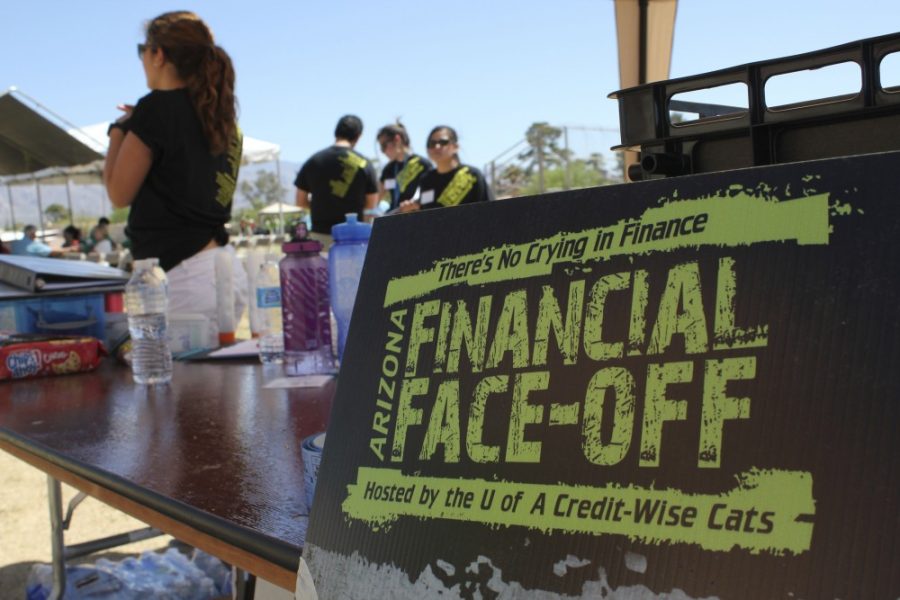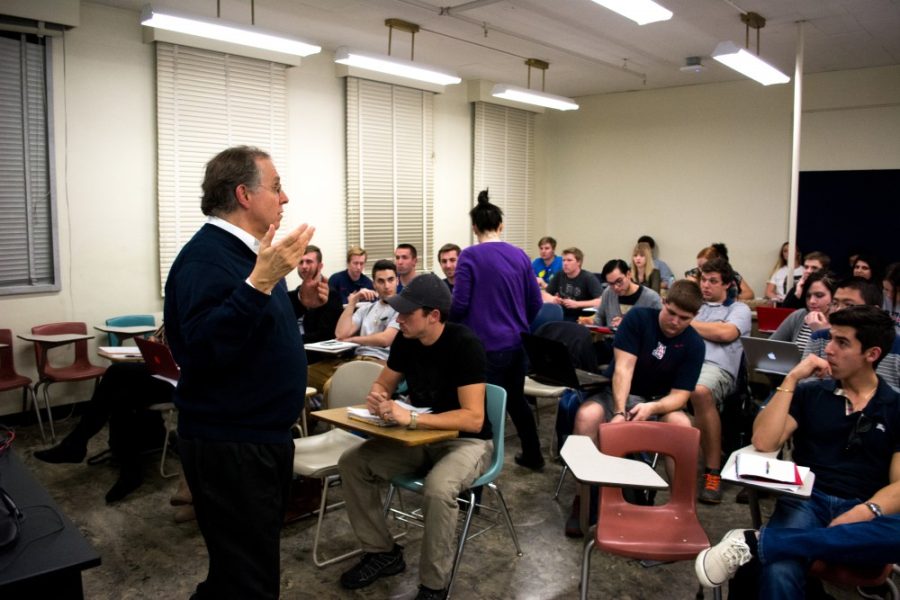The UA’s Credit-Wise Cats live by one motto: There’s no crying in finance.
The organization began with just five members in 2000, and aims to improve the financial literacy of young adults in local schools. The group now includes 15 ambassadors that partner with programs and community businesses to put on interactive personal finance workshops. On Saturday, the Credit-Wise Cats invited 14 high schools in Tucson to take part in a competition that challenged their financial literacy.
Young students could be seen chasing after footballs while simultaneously being asked questions about assets and liabilities at the third annual Arizona Financial Face-Off. Events of the face-off tested the students’ knowledge in four categories — credit reports, savings and spending plans, credit cards and creating a budget.
“Our ambition is to create a financially informed youth while still letting the kids have some fun,” said Juan Ciscomani, manager of Credit-Wise-Cats. Attendees spent their Saturday morning building a credit history by competing in games like “Budget Ball,” which parallels the structure of ultimate Frisbee, or “Financial Feud,” a spoof of the game show “Family Feud.”
The goal of these games was to earn enough points to make it into the top-six bracket, and those who did went on to the second half of the competition, where students had to figure out the best way to purchase a house.
“It’s really to get them thinking and to make critical decisions,” said Annalisa Moreno, a sponsor of the event from the Tucson Association of Realtors. Moreno served as one of the judges for the real estate section of the competition, during which she surveyed the school’s creativity and implantation of knowledge in realistic family scenarios.
Preparation of the event began back in August when members of Credit-Wise Cats first started traveling to various schools in Tucson and teaching financial workshops to students. The Credit-Wise Cats initially began hosting workshops for UA students 11 years ago, but when they started receiving invitations from schools in the surrounding neighborhood, they became aware of a lack of financial education in the public school system.
“Schools don’t have the training or resources, so we come in and take care of it for them,” Ciscomani said. “Parents are not comfortable talking about finances with their kids, so the students are able to relate more with college students coming in and teaching them about finance.”
The Credit-Wise Cats teach about 80 workshops off-campus throughout the year, and about 20 to 25 on the UA campus. The club goes through a two-month training period of financial education and public speaking before it is permitted to conduct a workshop.
“I still can’t believe they pay me to do this,” said Chelsy McHone, a senior studying retailing and consumer sciences and a member of Credit-Wise Cats. McHone said she is lucky to be a member of the team, since the organization only hires 10 students every year out of an applicant pool of about 200.
After a long day of becoming financially savvy, the top six high school teams were evaluated on the portfolio they’d been building throughout the competition. A check for $800 was the first place prize, while $600 and $450 were the cash prizes for second and third place, respectively. Each of the remaining 14 teams also went home with a $100 prize.
“At this point hopefully we’ve taught them to not blow their prize money on a pizza party,” Ciscomani said.









